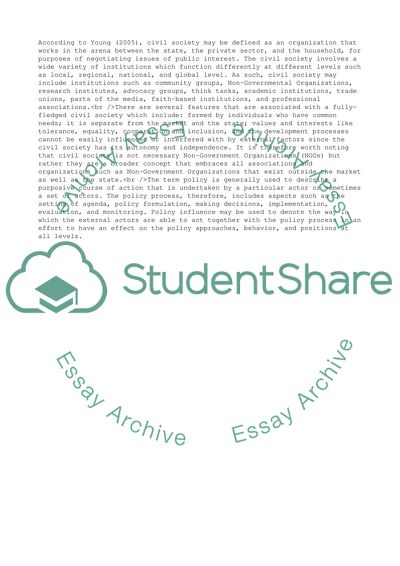Cite this document
(To What Extent Can Civil Society Organizations Influence Government Policy Essay Example | Topics and Well Written Essays - 1500 words, n.d.)
To What Extent Can Civil Society Organizations Influence Government Policy Essay Example | Topics and Well Written Essays - 1500 words. https://studentshare.org/business/1768330-to-what-extent-can-civil-society-organisations-influence-government-policy
To What Extent Can Civil Society Organizations Influence Government Policy Essay Example | Topics and Well Written Essays - 1500 words. https://studentshare.org/business/1768330-to-what-extent-can-civil-society-organisations-influence-government-policy
(To What Extent Can Civil Society Organizations Influence Government Policy Essay Example | Topics and Well Written Essays - 1500 Words)
To What Extent Can Civil Society Organizations Influence Government Policy Essay Example | Topics and Well Written Essays - 1500 Words. https://studentshare.org/business/1768330-to-what-extent-can-civil-society-organisations-influence-government-policy.
To What Extent Can Civil Society Organizations Influence Government Policy Essay Example | Topics and Well Written Essays - 1500 Words. https://studentshare.org/business/1768330-to-what-extent-can-civil-society-organisations-influence-government-policy.
“To What Extent Can Civil Society Organizations Influence Government Policy Essay Example | Topics and Well Written Essays - 1500 Words”. https://studentshare.org/business/1768330-to-what-extent-can-civil-society-organisations-influence-government-policy.


